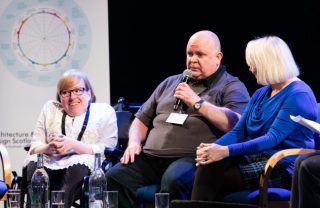GDA’s Vision requires change and collaboration from the highest level. While our programmes build disabled people’s capacity and confidence to speak out and share their expertise, our partnership work builds relationships and opportunities for dialogue, involvement and co-design of policies and plans, to deliver the change we need.
Participation, policy, and partnerships

